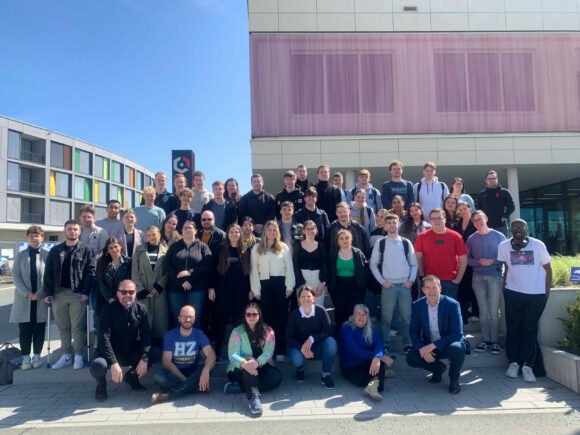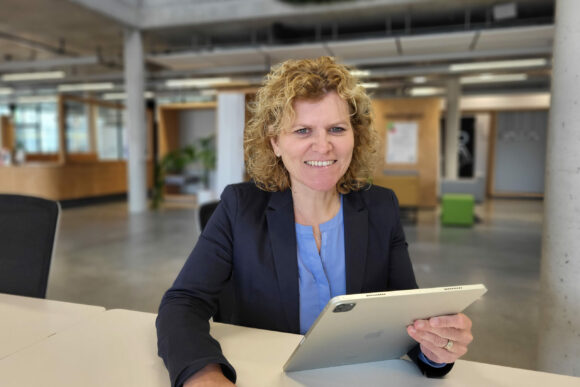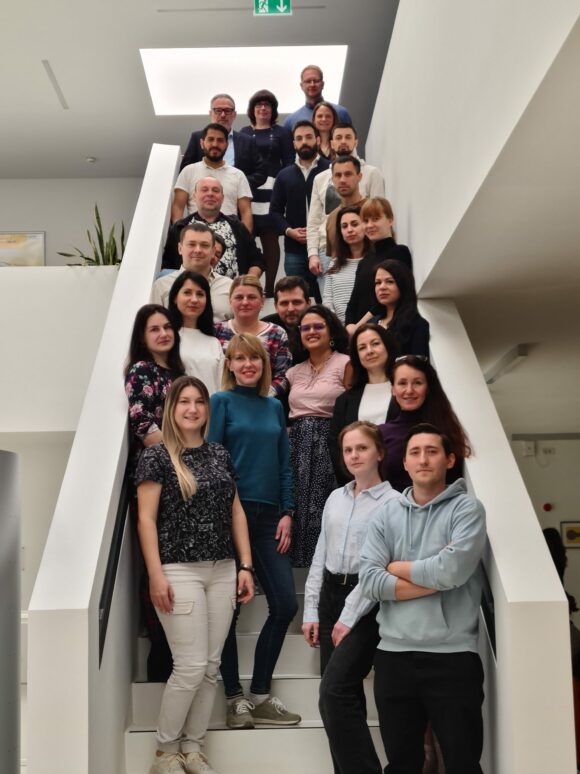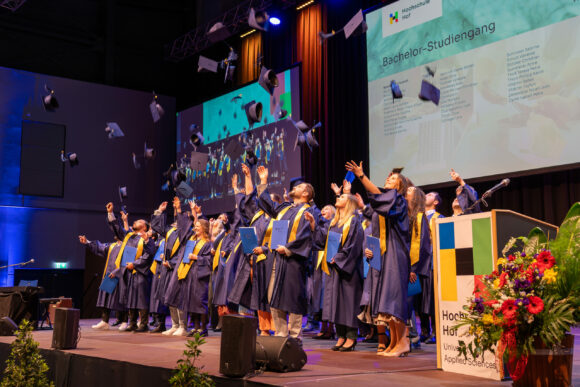With around 450,000 employees, the social economy is one of the most important economic factors in Bavaria. The ConSozial trade fair, which claims to be “the leading congress trade fair for the industry” in the German-speaking region, took place in Nuremberg in December. The research team around Professor Dietmar Wolff, Vice President Teaching and at the same time head of the research group “Innovative Health Care” participated in the event with the Truck for Digitalization (TruDi). TruDi is a mobile showroom that has around 60 digital and AI-supported technologies on board for caregivers, educational professionals and social counselors, including exoskeletons, VR glasses, a reading owl and various robots. We spoke with Désirée Neeb, who is part of the research team.
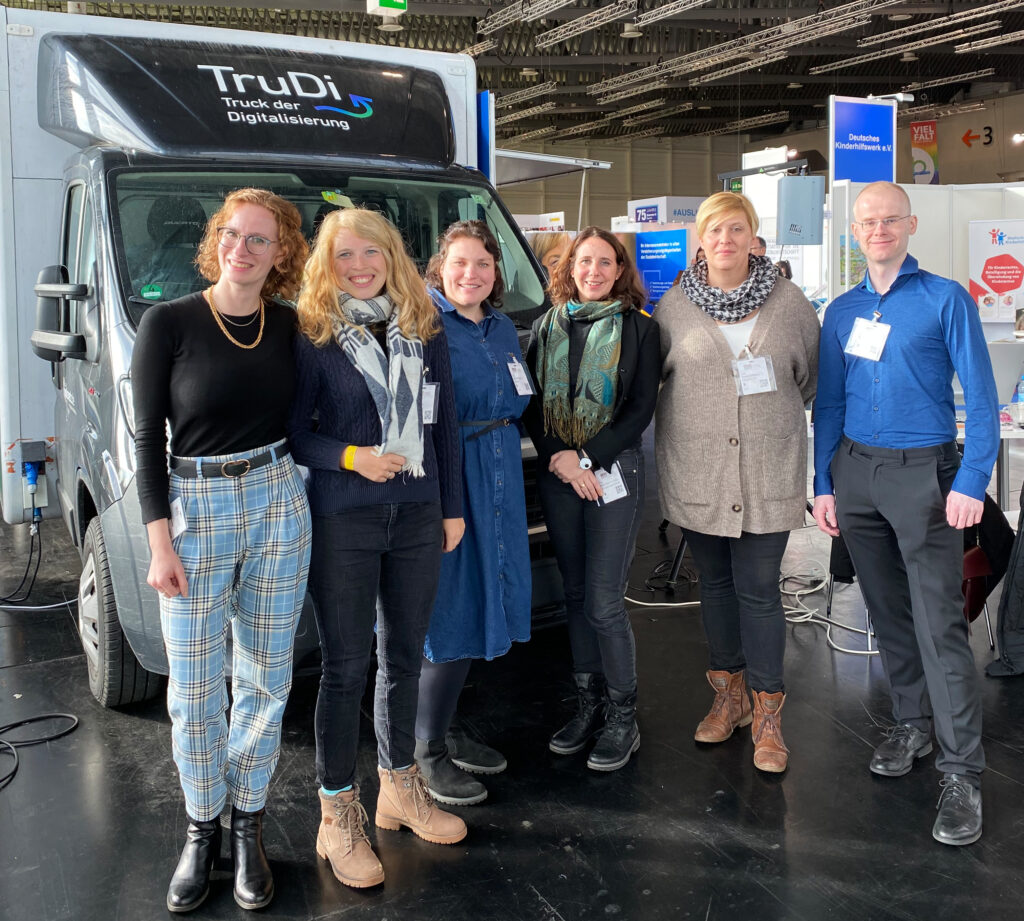
Dear Ms. Neeb, what was the reason for you to participate in the fair?
“There were two good reasons: First, ConSozial is a trade fair where TruDi’s main target groups hang out every year. So we come into direct contact with specialists and managers in the social and health care sector and can present our project: We promote “healthy working” with the help of technologies, e.g. with TruDi, but also through an AI-optimized duty roster design or an online campus. In addition, there is also an innovation park at ConSozial, where about 40 young companies present themselves with innovative and creative technologies
Since we are always on the lookout for good technical solutions for our target groups, ConSozial is our candy store, so to speak, where we can taste our way through the various offerings.”
Désirée Neeb, Innovative Healthcare Research Group
On the other hand, we also celebrated a small final meeting with our project partners here. Some of them we had actually not seen “live and in color” at all. That was really very nice again.”
You also gave two presentations. What were they about exactly?
“That’s right. Professor Dietmar Wolff and project manager Sven Bartel from Diakonie Baden gave a presentation on the topic of “Healthy work with artificial intelligence”. The main aim was to present the project results of “pulsnetz.de – gesund arbeiten” (pulsnetz KI). The fact that we were overrun by the audience afterwards speaks for itself, I think.
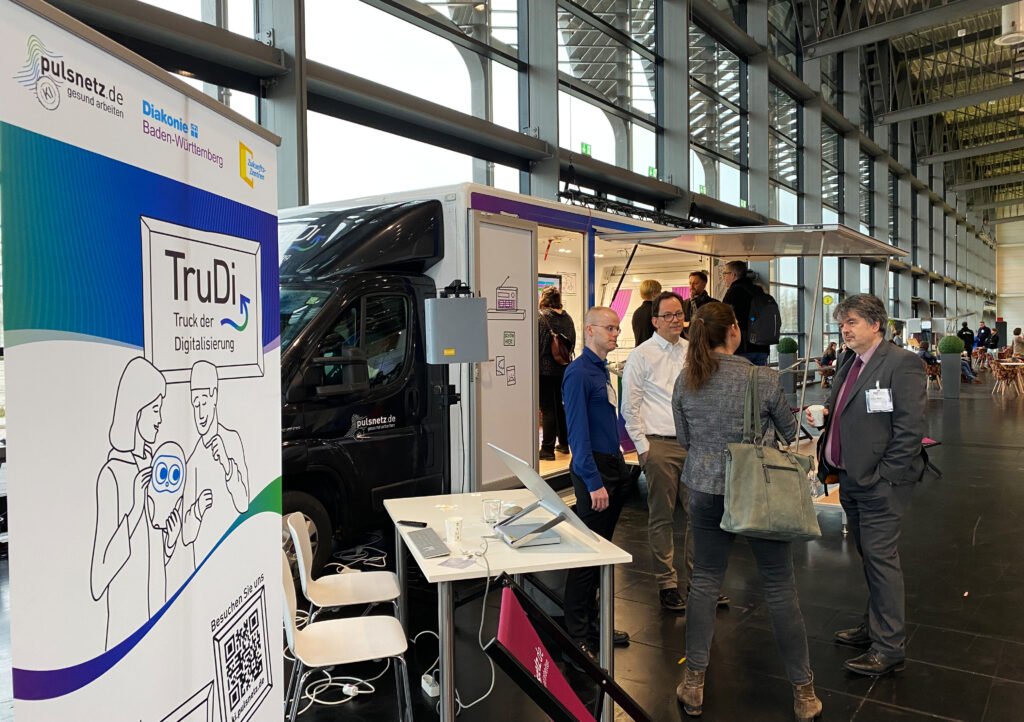
The second presentation was about “Integration of care into the telematics infrastructure: current status, challenge and discussion”. A topic that we have also encountered again and again in our TruDi workshops. Professor Helmut Kreidenweis and Professor Dietmar Wolff gave this talk as part of their activities in the Fachverband Informationstechnologie in Sozialwirtschaft und Sozialverwaltung (Professional Association for Information Technology in Social Economy and Social Administration, “FINSOZ e.V.” for short) and as pulsnetz project partners.”
If you remember the last two years with many workshops in Bavaria and also with the two other trucks in NRW, Baden-Württemberg and Berlin: What are the most important insights that have emerged from the digitization truck? Which application scenarios have turned out to be the best? Was there also criticism?
“I can, of course, speak primarily for the Bavarian TruDi. But I think it has also become apparent across the project as a whole that the range of the level of digitization in the different institutions is very wide
Some are routinely working with digital care documentation, with smartphones and tablets. Others are still struggling with a stable Internet connection.”
Désirée Neeb
So we realized pretty quickly that there can’t be a workshop à la “one-size-fits-all.” And that wasn’t our approach either. The individual approach to the workshop participants and taking their reservations seriously was crucial.
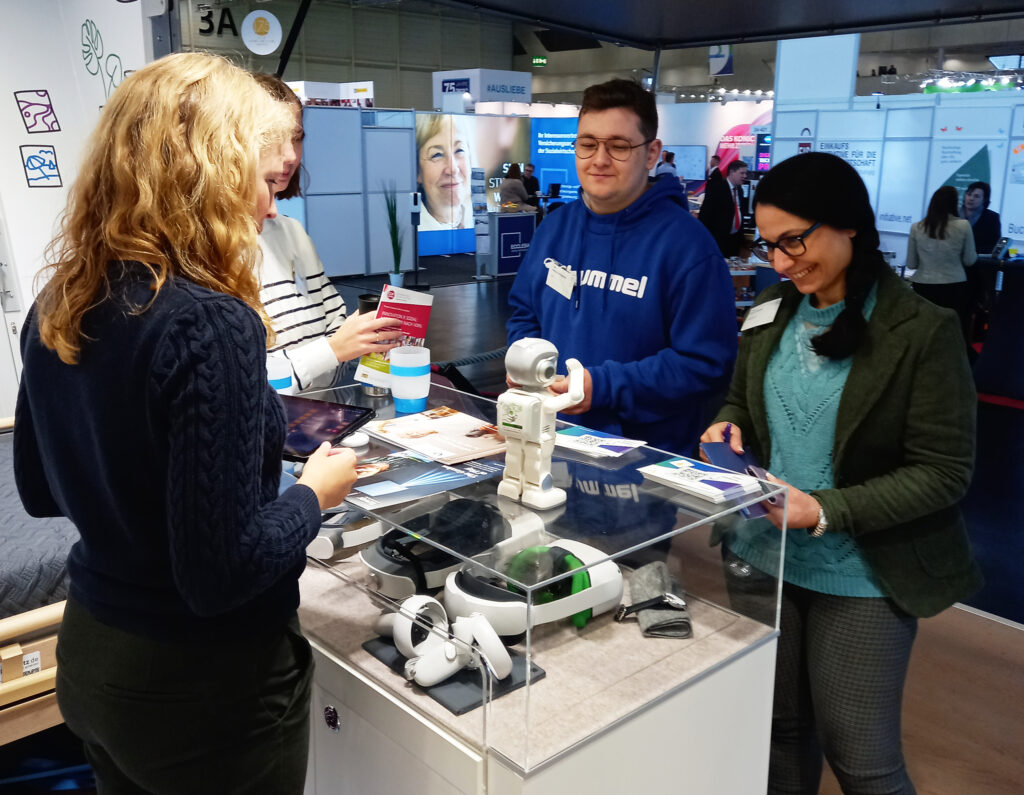
It is difficult to name a selection of technologies or an application scenario that was particularly well received, because – and here I repeat myself – every institution has different needs and priorities. But there were topics that interested everyone, for example: Exoskeletons for better posture and relief, voice documentation with AI that saves time on bureaucracy and thus creates more time for people, and VR glasses. The latter bring relief, but also new training and education formats.
Criticism? There was some criticism, of course – but more about the overall situation in the healthcare sector or the strained personnel situation. And I don’t know if a missing grill or cocktail bar can be considered serious criticism of TruDi.”
That’s pretty impressive and a huge success. So where does Trudi go from here?
“We’re sending TruDi to her winter quarters for now – with the temperatures, it’s also starting to get difficult to try out exoskeletons or VR glasses without shivering. The project “pulsnetz.de – healthy work” (pulsnetz KI) will come to an end on December 31, 2022. But the great demand for TruDi and the overall topic has shown that it absolutely must continue. And we have already worked a lot on this this year and we are optimistic that it can continue in the new year. A few more crossed fingers certainly can’t hurt, though.”
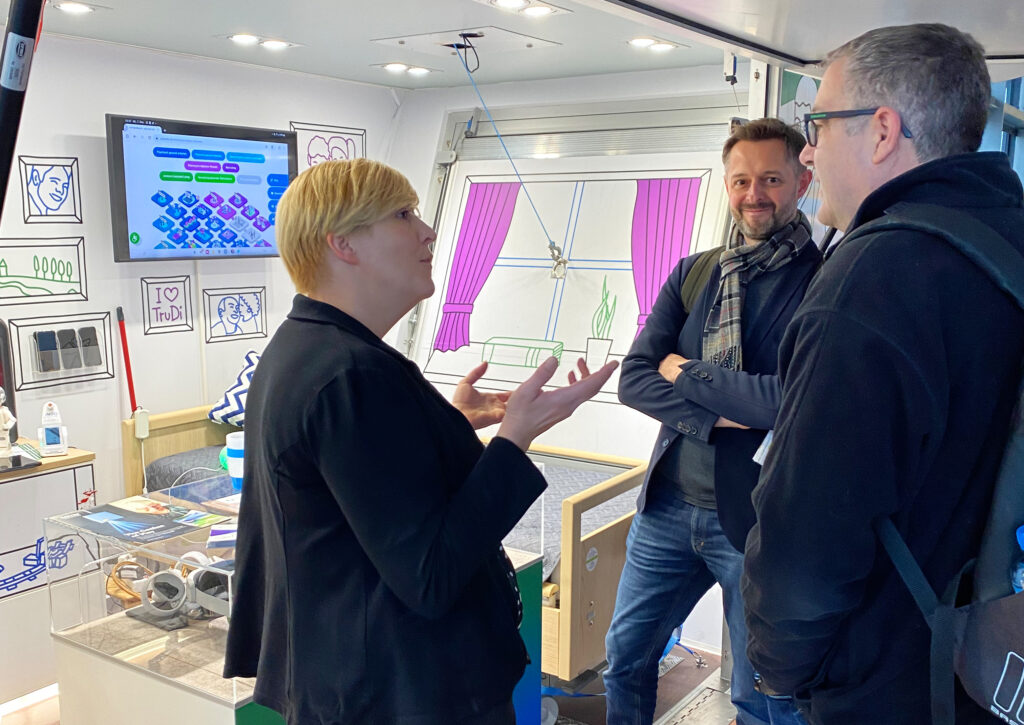
Do you also have some numbers for us: how many km has TruDi traveled and how many social facilities have been visited in the last two years? How many social workers could benefit from your presentations and demonstrations?
“I would like to send briefly beforehand that there have of course been many more insights, experiences and results, which I cannot list here at all. So feel free to check out our project website!
All TruDis together have covered a distance of almost 25,000 km, of which about 9000 were covered by the Bavarian TruDi alone. 24 facilities with 1550 participants in 305 workshop hours were visited by Sophia Giegold, Yvonne Großmann, Dietmar Wolff and me. In addition, there were 52 facilities from Baden-Württemberg, Berlin and North Rhine-Westphalia. In addition, we were at 23 trade fairs, information events, specialist days and festivals. Over 600 technologies can be found in our database. 60 technologies were on board TruDi, 10 of which were discarded or exchanged in the course of the project. 87 discussions were held with manufacturers. And, of course, we networked – 11 new collaborations were formed.
As the “Innovative Healthcare” research group, we can’t put a number on how much our experience and knowledge horizons have expanded. But we all went out of the project smarter than we came in.”
Thank you for the interview!




